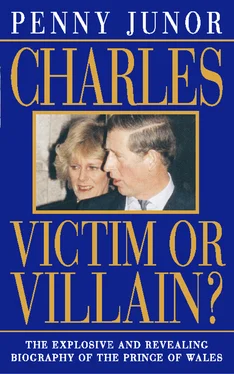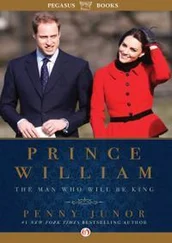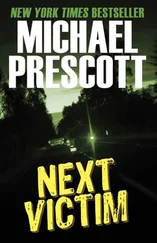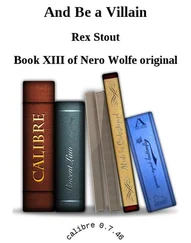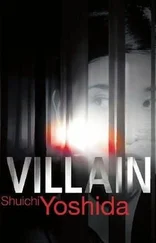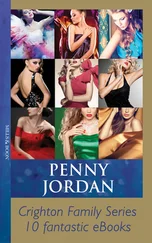1 ...8 9 10 12 13 14 ...19 Despite the girlfriends, the Prince was fundamentally lonely and longed to find someone to share his life with. He wanted to settle down, be domestic, have a garden and dogs and children, and all the things that his friends had. He had spent his life in search of love and reassurance and was dogged by a sense of worthlessness, which his parents had done nothing to help him overcome. They are not demonstrative people, and praise for one another’s achievements is not something that comes naturally in the Royal Family.
Those who have known the family since Charles was a child say that the Queen adores her eldest son, as she adores all her children – there is no doubting the affection – but sadly it is not in her nature to be overtly affectionate. Some remember her sitting him on her knee at afternoon tea when he was small, and playing games with him, but that physical closeness disappeared as he grew older. The Queen inherited the throne when he was three years old on the death of her father, George VI, and her duties as monarch inevitably competed with motherhood, taking her away more than she would have chosen. She made it a rule to be with her children at bath and bedtime, whenever possible, and to be at home during the school holidays, but day to day care was left to much-loved nannies, which was normal in upper-class families of that period. The one time she was away for a sustained period was for the Coronation tour in 1953–54, when she and the Duke of Edinburgh were gone for six months, including Christmas. It was then that Charles saw so much of the Queen Mother and, although the Prince adores his mother, the relationship never developed the real warmth or intimacy that he shares with his grandmother.
Even on the night Diana died, when his mother was on the other side of a thin partition wall, he sat and talked and worried not with her, but with his friends and his advisers. When he thought Diana was injured and was undecided about whether to get on a plane and go to Paris, he didn’t ask his mother’s advice, he asked his private secretary; and in the arranging of the plane, his advisers spoke to her advisers. This is no ordinary mother–son relationship: Charles has been in awe of her all his life and, even at fifty, is still delighted beyond reason when she compliments him on something she has noticed he has done well.
His father is equally loving and proud of his eldest son, but no less sparing in showing it. He was rough with Charles as a child and witnesses say he frequently reduced the boy to tears. Charles was a sensitive, shy and uncertain little boy, in contrast to his sister Anne, who was tough and sure of herself and could do no wrong. The Duke probably thought this kind of treatment would make a man of Charles, but it only served to undermine his confidence still further. Charles was frightened of his father, and desperate for his approval, but try as he might to please him, he seldom could.
There are not many men of fifty, with independent means, who are still trying so hard to please their parents – certainly not men with the kind of physical courage that the Prince of Wales indisputably has. But the family that Charles was born into is not like any other family in Britain and he was conditioned to accept, without question, a way of life that normal people would find quite intolerable. Duty to Queen and country comes before any other consideration. Charles is never entirely alone: a detective is within earshot twenty-four hours a day. He never goes anywhere without someone knowing. He has no privacy, therefore, and is dependent upon the discretion of the men who shadow him.
There is no heart to the family: it is a business, an institution, and participation is not an option, it is duty. There is very little communication between members of the family. When there is, it is often by memo, or via private secretaries. And, except for holidays and ceremonial fixtures, there is very little contact between them. Their lives are run to a formula, from which there is no deviation or spontaneity, and the formality with which the Queen runs her household is from another age.
Apart from the companionship, which he craved, Charles had no need for a wife. His life was ordered: his meals were cooked; his clothes bought, laundered and laid out for him; his every whim catered for; his friends numerous, understanding and sufficiently fawning; his office compliant; his love life exciting; and his sporting activities and holidays strategically organised from one year to the next to fit in around official fixtures, functions and the call of duty. He had houses in the country and convenient apartments at Buckingham Palace; he had horses, dogs and cars, and a fleet of royal helicopters, planes and trains, not to mention the royal yacht at his disposal, plus holiday homes in all the places he most liked to be. He only had to click his fingers and what he wanted arrived or was fixed. The only benefit a wife could bring, which he could get nowhere else, was an heir.
By an accident of birth the Prince of Wales was cursed with a life in which his waking hours are mapped out six months in advance, and there are fixtures in his diary which will be there on the same day every year for the rest of his life. He is surrounded by people who tell him what they think he wants to hear; he is paraded like a performing poodle on high days and holidays, and his every twitch and grunt recorded and analysed by the tabloid press. His right to exist is debated regularly, as though he had some say in the matter, and his character and physique considered fair game for whoever fancies taking a passing punch. This is how it has been since he was three years old, when his mother became Queen.
He is an uneasy mix of old and new, half expecting the deference, service and lifestyle of another era, and half wanting to be a modern man of the people in an egalitarian age. But he is hampered by being kept at one remove from the life modern man leads. Diana had one huge advantage over the Prince: she did understand how the other half lived, because she had grown up in the real world. The Prince, try as he might, has never been given a chance. He has wanted to meet people in their own environment, but he is always cushioned. Try as he might to empathise, he will never know what it is like to queue for hours in a hospital casualty department or have petty bureaucrats be rude to him. He will never be elbowed out of the way in the rush for the first bus to appear in twenty minutes, know the frustrations of a train being cancelled, or have to hang around an overcrowded airport lounge. And if it starts to rain, someone will appear with an umbrella to keep him dry.
When he was forty minutes late for an Order of the Bath ceremony at Westminster Abbey with the Queen not long ago, he was incandescent with rage. The helicopter had been unable to land at Highgrove because of fog, so he was told to drive to RAF Lyneham nearby, only to discover that the fog was just as bad and the helicopter couldn’t land there either. There was no alternative but to drive all the way to London, which made him late. Some unfortunate person had got it wrong, and he hit the roof. When his staff once failed to organise his supper menu on the royal train because they had been working exceptionally hard on a very tricky weekend of engagements that had gone like clockwork, he was furious. The chef said he could do him one of three dishes: some salmon, a salad or steak and kidney pie. He petulantly said he didn’t like any of them. When a member of staff once failed to call him ‘sir’ or ‘Your Royal Highness’ – terrified by the experience of meeting the Prince for the first time – he said, ‘Do you think you could ask that chap to call me something when he meets me?’ Friends will say, ‘He only lets people know who he is when they forget,’ but it evidently depends upon what sort of mood he is in, and during the difficult times in his marriage, his moods were highly unpredictable.
Читать дальше
